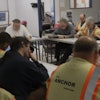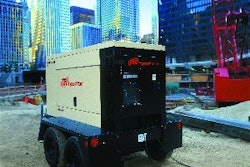During a recent shopping trip to a big box retailer with my wife, our experience with the customer service left me less than inspired. Some interactions went smoothly while others were painful.
For example, the greeter was very friendly, offering a warm smile and a cart. We were off to a nice start. However, while browsing, my wife had questions about a particular vacuum cleaner and we spent 20 minutes looking for an employee. Once we located a young lady in the toy department, she had very little to offer and quickly vanished in search of someone else who could provide answers. After 10 more minutes, another gentleman arrived and although he worked in the department, he offered little additional insight other than what was written on the side of the box. We certainly did not feel any more educated about this expensive vacuum cleaner.
A little frustrated and tired of standing in the same aisle for the majority of our visit, we quickly finished our shopping and headed to checkout. The cashier greeted us with a smile and asked if we had any coupons or gift cards. He also asked if we found everything we were looking for while he was bagging our purchases. Not telling him the whole truth and instead responding with a "Yes, we did," the cashier began processing our credit card. While giving us our receipt, he thanked me by name (which he read on the card) and gathered our bags to make sure none were left on the carousel.
Our visit to this store was impacted by many individuals and while some had exceptional customer service skills, the employees who didn't deliver tarnished our overall experience. The challenge for most companies becomes creating consistency within the organization. With different employees in sales, service and rental departments, inconsistent customer service could negatively impact the overall customer experience. Every single employee who has any customer interaction should deliver consistent ? and exceptional ? customer service.
Today, it's increasingly difficult to thrive if attention isn't focused on how customers are treated. In speaking with equipment rental dealers, more and more are recognizing that exemplary customer service can, and should, be a fundamental business component. It should become a competitive advantage, especially as equipment becomes more commodity-oriented.
In working with thousands of clients in the equipment rental industry, customer service is fast becoming a very effective way to help ensure loyalty and differentiate a company from its competition.
As market conditions become more challenging, it's important to focus on customer service and sales skills. The majority of time is spent focusing on operational efficiency, strategic direction and marketing initiatives. How much time is being given to developing and executing a customer service plan?
Many rental store owners and managers become removed from the frontline and may not have an accurate picture of the customer experience. Is the passion for customer service shared by frontline employees? Is the frontline staff focused on customer needs and closing the sale?
A great tool for experiencing the service your team provides is by using recorded mystery shop calls in which a third-party experienced shopper poses as a potential customer. In many cases a customer's first impression of your business occurs over the phone. Therefore, it's important to give potential customers the best perception possible.
After mystery shop calls are completed, here are four simple steps you can use to help your employees become effective communicators and better salespeople:
1. Listen to your calls. While this may seem like an obvious piece of advice, many of the clients we work with don't take time to review their mystery shop calls with their employees.
2. Review shop call specifics. This face-to-face discussion with your employee is often a springboard for constructive internal coaching. Be sure to highlight areas in which the employee excelled and then discuss areas for improvement. Emphasize the value of each call to your business, especially during a challenging market. The phone is the pipeline to new sales. These calls provide a great development tool in regards to customer service levels and the execution of selling strategies.
3. Encourage practice. Much like building any skill, improving customer service and sales techniques happens over time and with practice. Therefore, be sure to support and encourage employees. Whether it is role-playing customer interactions with co-workers or discussing best practices during regular meetings, newly learned behavior needs to be reinforced for lasting change to occur. While it can be argued that providing legendary customer service isn't rocket science, it isn't natural for many employees, either.
4. Get help. Often, there are limited internal resources to continually assist in developing customer service skills through training. If outsourcing is possible, your training partner can help set objectives to match your company's goals. Talk with the instructor or the training company so they understand your particular business challenges and make sure they are willing to tailor their program for you.
Many businesses talk about the importance of customer service, but few actually deliver the goods or do so consistently. Part of the problem is that companies don't take the time to spell out what good customer service means to their business and define behaviors that employees must exhibit.
Without a clear customer service manifesto, training, and the implementation of these critical skills, becomes random ? if it happens at all. And without training, it's up to employees to decide how they're going to treat customers. I'm sure that is not the best recipe for success, especially when an employee is having a bad day.
While you may think there is a short-term fix, there is no magic wand when it comes to building a customer service-oriented culture. It is a long-term commitment. To truly stay competitive, owners and managers of rental centers need to invest in ongoing training and reinforce and measure those skills. In most organizations, it takes months to adapt the skills to the culture. Reaching the point where your team's customer service skills become a differentiator takes discipline, commitment and a passion to serve that is communicated to your staff.




















